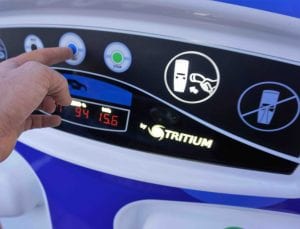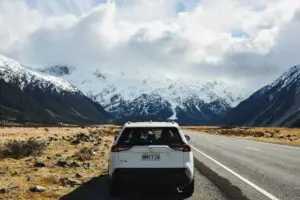
European carmakers Renault and Volkswagen are looking to a future where people share electric cars rather than own them.
Renault, whose vision of shared electric mobility is designed to address challenges of public health, climate change, accessibility and ease of travel as well as the affordability of private transport, intends a gradual rollout of commercially available shared cars starting as soon as September this year.
By the end of 2019, it expects to have a fleet of 2,000 vehicles on the roads, made up of Renault’s 100% electric ZOE, Twizy, Kangoo Z.E, and Master Z.E.

The French automaker joins with the City of Paris, who they will join with in a second phase to bring together major cities and companies in the region to worksop how shared electric mobility can integrate into urban centres.
Anne Hidalgo, Mayor of Paris and President of C40, expressed the positive impact on quality of life such changes could make.
“Cities and car manufacturers have a vocation to join forces for the future of mobility.
“Paris and Groupe Renault are now leading the way by converging their action in the areas of car sharing and electric motors. This will make it possible to offer Parisians and Ile-de-France residents a healthier, less polluted living environment, where everyone can move more easily, “ she said in a statement.
“This constructive agreement is also an opportunity to promote major technological and industrial advances, which contribute to the implementation of the Paris Climate Agreement and create sustainable jobs and activities.”
Volkswagen’s plans – announced on the same day – would see car sharing services begin in Germany next year, rolling out to other major cities across Europe, North America and Asia from 2020.
The German auto giant recently announced their intention to develop a whole range of electric vehicles from the futuristic ID series, to remakes of iconic models like the Beetle and the Kombi, although which models will be used in the program are yet to be seen.

While some reports suggest that car-sharing or ‘vehicles-on-demand’ could increase congestion in urban areas, VW’s Board Member for Sales Jürgen Stackmann explains that the move could still improve transport in cities.
“We are convinced that the car sharing market still has potential. That is why we are entering this market with a holistic single-source concept covering all mobility needs from the short journey that takes just a few minutes to the long vacation trip.
“Our vehicle-on-demand fleets will consist entirely of electric cars, and will therefore provide zero-emission, sustainable mobility. That is an intelligent way to relieve the strain on urban areas”, he elaborated.
There are no indications as yet whether either Renault or Volkswagen will introduce such a program in Australia, James Tilbury from EnergyLab says that ‘transport-as-a-service’ (TaaS) in Australia could have definite benefits over owning electric vehicles privately.
“TaaS has the potential to be significantly cheaper than personal car ownership. TaaS and personal vehicle ownership will each have their own advantages in regards to convenience – you don’t need to find a park or count your drinks with Taas but you also can’t leave your sports equipment in the trunk,” he told RenewEconomy.
In Germany, vehicle-on-demand services would be managed by VW subsidiary UMI Urban Mobility International GmbH, under CEO Philip Reith.
He confirms that what people want is to travel in a way that eco-friendly, affordable and fast.
““Our customers expect an environmentally-friendly fleet that takes them to their destination quickly and at a fair price – and that is exactly the experience we will be delivering,” he says.
Renault did previously report that the ZOE supermini and Kangoo ZE van would be available in Australia by early 2018, however this has still not eventuated. They have been contacted to confirm when we can expect to see either model on Australian shores but as yet have not responded.
VW also intend to introduce what they refer to as micro-mobility solutions – that is, electric scooters like the CitySkater and Streetmate, also part of the ID series.











